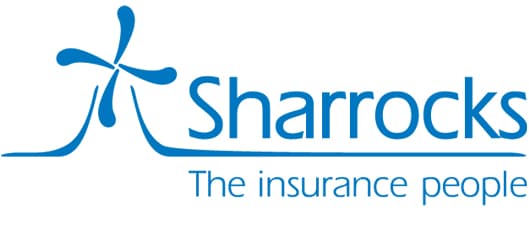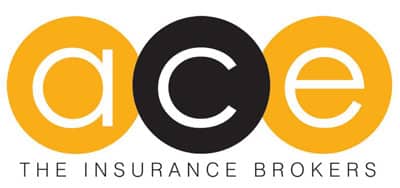
Shop Insurance
Compare Shop Insurance Quotes
- Complete one short form
- Quickly compare quotes
- Find a great deal today

Compare shop insurance quotes from UK’s leading business property insurers including;
Why Compare Shop Insurance At SimplyQuote.co.uk?
If you want to save money on your business insurance premiums, comparing shop insurance quotes through SimplyQuote is a great place to start.
We understand how tedious it can be to compare multiple insurance quotes from different providers. That’s why SimplyQuote, through its partnership with Quotezone, offers a 100% free online comparison tool to simplify the process for you.
Access a wide range of suitable insurance policies from leading UK insurers in a matter of minutes. If this isn’t simple enough for you, then we don’t know what is!
What Do You Need To Get A Quote?
Please provide the following information to get an extensive list of suitable quotes:
- Personal details – name, contact details
- Business details – nature of business, company registration info, location/s
- Employee details – how many staff do you employ?
- Policy details – what cover are you interested in?
- Insurance details – claims history
Why Do You Need Shop Insurance?
You don’t legally need shop insurance in the UK to run your business, but it is something we highly recommend you consider.
Shop insurance protects shop owners from a wide range of accidents and mishaps including:
- Legal disputes should a customer/staff be injured on your property
- Damaged equipment that is an integral part of your business operations
- Storm damage, flooding, fires and burst pipes
- Lost income following an insured event
- Theft, robbery and vandalism
No matter if you run a small newsagent, retail business or a high-end sunglasses emporium – shop insurance cover provides the financial aid you need.

What Does Shop Insurance Cover?
Shop insurance covers a multitude of things:
Public liability insurance
Public liability insurance can cover a wide range of aspects, but the most common things that it covers are claim settlements, legal fees, and repair or replacement costs.
Businesses are responsible for ensuring the welfare of each individual who visits their premises. If a member of the public is injured on retail business property or as a result of a business’s activities, public liability insurance can cover that retail business.
Note: Public liability insurance should not be confused with public indemnity insurance which protects you against negligence claims.
Employers’ liability insurance
In the UK, employers’ liability insurance is a legal requirement. While fulfilling duties on or off the retail premises, an employee may fall ill or sustain a serious injury. This type of insurance, therefore, protects the business against claims and lawsuits from employees by handling legal costs and compensatory payouts, as needed.
Professional indemnity
When a professional or a professional’s business provides a client with advice or services that result in a loss on the client’s part, then that client may look to file a lawsuit against them. Professional indemnity insurance covers legal costs incurred when defending yourself from such a suit.
Buildings insurance
Buildings insurance can cover the cost of repairing or completely rebuilding a business following damage to the structure. This includes damage caused by events such as fire, flooding, attempted theft, and burst pipes.
Business interruption insurance
When your business operations have to halt due to uncontrollable circumstances, the loss you experience may be incredibly hard to recover from.
This is where business interruption cover can be a lifesaver.
With business interruption insurance, your insurer will help restore your business to the same financial state it was before the accident occurred as well as cover any loss of income.
Business interruption insurance should always be part of your shop insurance policy.
Stock insurance
Stock cover is key for retail businesses, particularly those in the FMCG (fast-moving consumer goods) sector. If stock is damaged, stolen, or lost, stock insurance can cover the cost of replacing that stock.
Product liability
In the event a product you sell causes harm, injury or illness to a customer (e.g. a body lotion has caused a skin allergy), you are financially protected with product liability insurance.
Personal accident insurance
With personal accident cover, business owners and their dependents can be covered should an accidental death occur or an injury causing a temporary disability. This type of insurance can also come with various support services to ease recovery.
Accidental damage
Accidents happen from time to time at no fault of any one person. Accidental damage will cover you in these instances. For example, a customer accidentally knocks over a display stand.
Contents insurance
If your shop has fixtures, fittings, and furniture that can be lost, damaged, or stolen, then contents cover can handle the replacement or repair costs. It’s also worth checking if your shop insurance policy includes employee belongings under this cover.
What’s not covered?
- Normal wear and tear to the property due to poor maintenance
- Intentional damage caused by the shop owner (to claim insurance payout)
- Negligence costs (e.g. leaving the cash register open and money is stolen)
- Business vehicles – you will need separate business car/fleet insurance for this
- Delivery vans (including scooters/mopeds, etc.) – if you run a food delivery service from your business, you’ll need specialised food delivery insurance
What kind of shops are covered?
Generally speaking, any kind of shop is covered with shop or retail insurance, including:
- Food retail – coffee shops, cafes, restaurants, etc.
- Arts and crafts
- Clothing/retail
- Grocery
- Gift and greeting card shops
- Newsagents
- Boutiques
- Cake makers and decorators
What Add-Ons Are Available For Shop Insurance In The UK?
There are several optional extras you can add to your shop insurance policy in the UK:
Terrorism cover
Commercial terrorism policies cover the cost of repairing, completely rebuilding or replacing property that has been destroyed or damaged during a terrorist attack. Terrorism insurance may also cover losses linked to the interruption of your operations or liability claims.
Business equipment
This policy is good for businesses that rely heavily on equipment, as an insurer can expedite the repair or replacement of equipment. They will cover the costs to repair or replace damaged, stolen or faulty equipment.
Takeaway insurance
If you deliver food from your grocery store or cafe, opt for food delivery insurance to ensure you are properly covered in an accident.
Legal expenses
As the name suggests, legal expenses insurance covers the cost of legal fees when you require the service of a lawyer. This applies when someone else takes you to court or vice versa.
Cyber theft insurance
Cyber insurance was created to help businesses recover from any financial or legal harm associated with a data breach. Depending on the type of business you run, having cyber insurance may also be a means of complying with certain online trading regulations.
Online shop insurance
This policy usually covers everything that a “physical shop” insurance policy would cover. However, the terms and conditions may differ so you need to check these with your chosen insurer.
How Much Does Shop Insurance Cost?
Basic shop insurance can start from as little as £12.95 per month but the final price tag depends on several factors, such as where your shop is located and the types of goods you sell.
What impacts insurance prices?
- Location of your business – high crime areas generally have pricier premiums due to an increased risk of theft, burglary or vandalism.
- Type of goods sold – high-value items like jewellery have higher premiums when compared to perishable “lower risk” goods.
- Machinery and equipment – commercial machinery like industrial ovens or heavy-duty forklifts are more expensive to insure than low-ticket items like telephones, office printers or laptops.
- Vehicles you own – while vehicle insurance may be a separate policy (i.e. not covered on shop insurance), you’ll likely need to get cover for them which further drives up your insurance costs.
- Workforce size – more workers = higher premiums. This is because there are more “fingers in the pot” where something could go wrong.
- Claims history – if you have made any insurance claims in the past it will have a negative effect on your current insurance premiums as insurance providers class you as “high risk”.
- Annual income – businesses that earn more generally have more to protect, such as on-site cash sales, stock and equipment.
- Length of cover – short-term insurance cover is typically more expensive than annual policies.
How Can You Get Cheaper Insurance?
Here are a few ways to reduce your shop insurance premiums:
- Compare quotes from a number of insurance providers via SimplyQuote.co.uk to find the best deal.
- Opt for annual payments as opposed to monthly instalments.
- Up your shop’s security with CCTV cameras, security gates and alarm systems.
- Keep on-site cash locked away in a safe, away from customers and staff.
- Reduce overcrowding to minimise mishaps.
- Keep up to date with property maintenance to reduce wear and tear.
How To Compare Shop Insurance Quotes At SimplyQuote.co.uk?
Comparing shop insurance services via SimplyQuote is quick and hassle-free:
- Fill in the quick form with a few personal and business details.
- Choose policy add-ons and optional extras best suited to your business.
- Compare quotes effortlessly from a range of top-class UK insurers.
- Save money and get the best deal today!
Frequently Asked Questions
Shop insurance is a type of commercial property insurance tailored to retail stores. It protects them from risks and claims that could cause legal and financial problems. More often than not, these claims come from customers who have sustained an injury on the site of your operations, gotten sick through your products or from incidents related to staff members.
Customer-facing businesses run many risks when providing products or services to the public, and naturally, shop owners also want to protect the shop’s building, contents, stock, and personnel. A shop insurance policy is specifically designed to do that.
The short answer: it depends. The amount of retail business insurance you need depends on your business operations. If you are selling high-ticket items like luxury fashion, antiques or jewellery – you’ll need more insurance cover than a newsagent or stationery shop.
You must tailor your business insurance policy to what suits your business and budget.
A business owner’s policy is a type of insurance that bundles various types of cover into one package. Because these packages typically offer cover at a lower rate than making separate cover purchases, they tend to be a popular option for small businesses.
Most business owners’ policies cover property damage, legal liability, and business interruption but won’t cover commercial vehicle insurance, health insurance, disability insurance, professional services insurance, and professional liability insurance.
Additionally, BOPs are generally exclusively available to small and medium-sized businesses in lower-risk industries such as retail and manufacturing. Always clarify the extent of cover with a prospective insurer before signing any documents.
A Financial Services Registration Number is a unique identifier assigned to UK businesses, individuals, and bodies regulated by the Financial Conduct Authority.
Written by Chris Richards
Page last reviewed on 22nd January 2025 by Chris Richards


